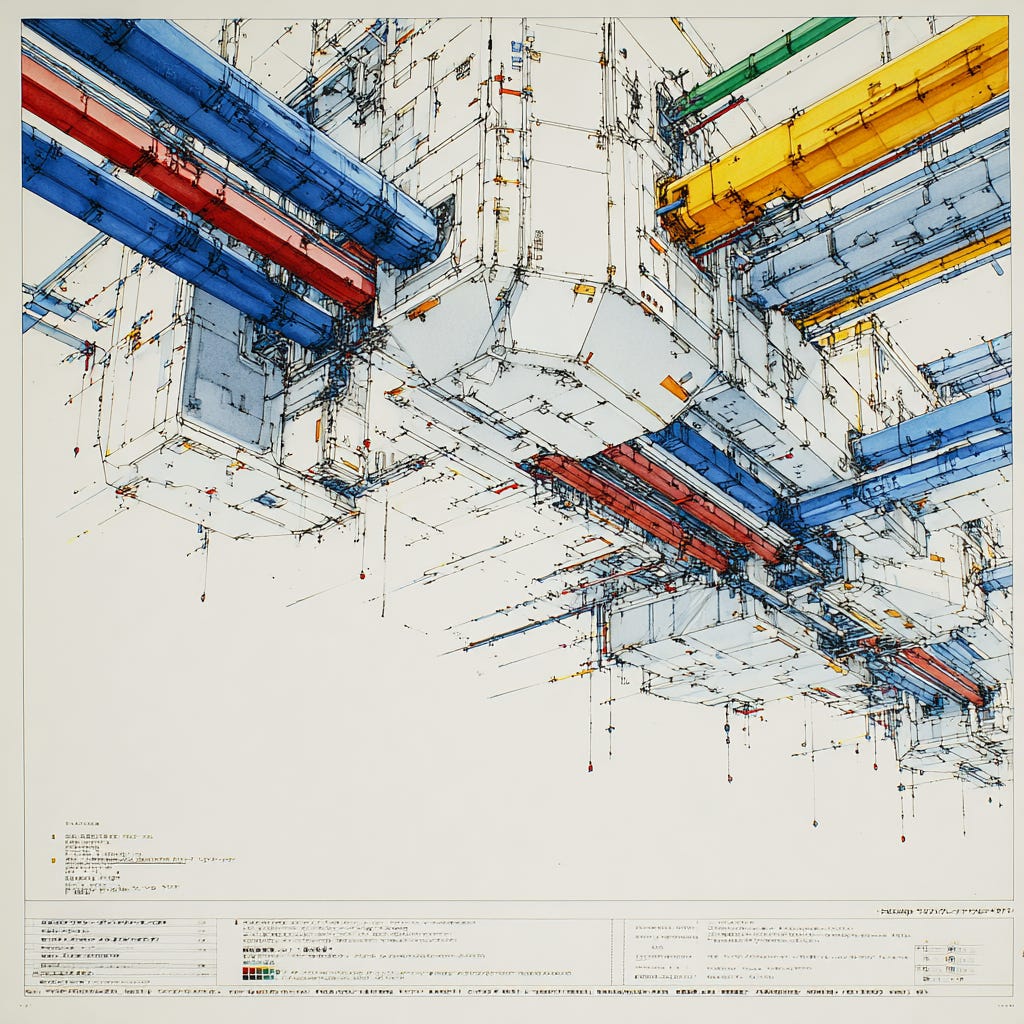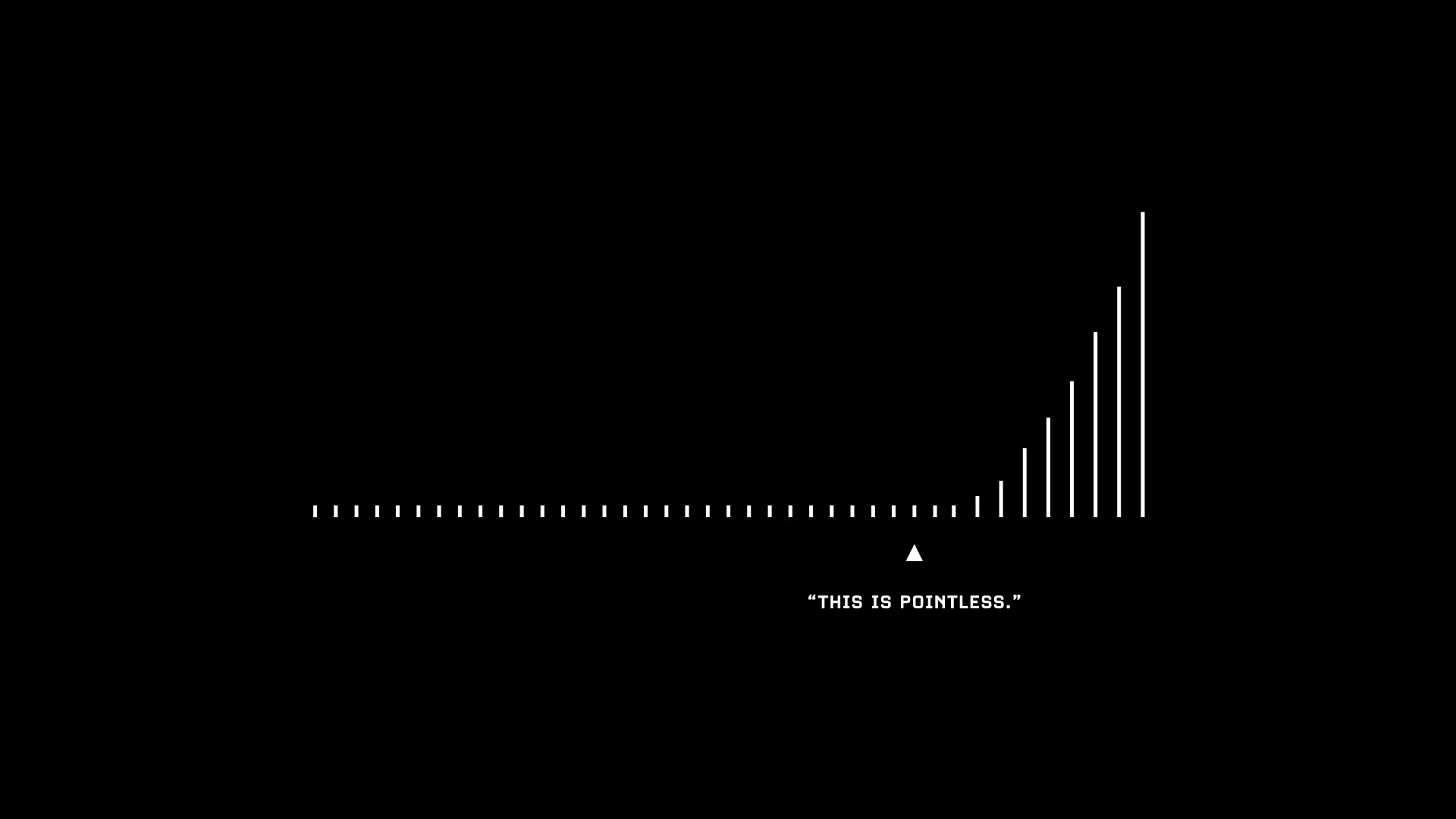Edge Letter #2: Why Your Morning Routine Failed (And the Framework That Actually Works)
Everyone's seen Ashton Hall's viral morning routine video. Wake up at 3 AM, cold shower, meditation, workout, the whole extreme setup that supposedly "changed his life."
And honestly? I believe him. Because I've experienced the same thing.
But here's where most people completely miss the point.
They see Ashton's 4 AM wake-up calls and think routine means turning yourself into a robot with some rigid schedule. So they pile on 15 different habits, try to overhaul their entire life overnight, and when they miss one day of their perfect routine, they give up entirely.
Or they stick with it for a week, don't see any instant transformation, and decide "routines don't work for me."
Both approaches are wrong.
The real power of routine isn't the specific time you wake up or how many tasks you cram in.
It's this: routine gives you structure to do the things that better yourself without having to think about it.
When your mind isn't wasted on decision fatigue about basic daily actions, you can focus that energy on the stuff that actually moves the needle.
Why Most Routines Fail (And How to Avoid It)
Most people fail at routines for three predictable reasons.
First, they pile on everything at once. Wake up earlier, cold shower, gym, meditation, journaling, the whole Instagram influencer starter pack.
When previously they've done nothing. It's a recipe for disaster.
You succeed maybe a couple times, but life gets messy, you start slipping, anxiety kicks in because you didn't check every box, and eventually you give up entirely.
Second, they expect miracle results in a week. Routine isn't some magic productivity hack that transforms your life overnight. The real results come when you stop obsessing over results and just execute. That's when routine gives you more power and time.
Third, they copy someone else's routine completely. Wrong move. You need something that fits your schedule, your life, your reality. Start simple with a few things, then add gradually as you get comfortable.
I've made all these mistakes. Overcomplicated my routine, stuffed it with too much, gave up when it felt overwhelming. But those mistakes taught me what actually works.
How Becoming a Father Changed Everything
Everything changed when I became a father.
Suddenly, routine wasn't optional it was survival. With a child, you have way less time.
Before baby, I was flexible. I could hit the gym whenever, work whenever. But now routine gives me that flexibility back. Sounds contradictory, but it's true.
My morning routine happens before baby wakes up. My evening routine after he's down. I get everything important done without sacrificing time with my child. No daily decision fatigue about what needs to happen the crucial stuff is already locked in.
Progress feels small, but in situations where a child takes most of your time, routine is everything. It removes the mess from your head. You know exactly what you need to do and when.
Why Routine Saved My Trading (And Can Save Your Goals)
Creating routine isn't just nice to have it's the difference between success and failure.
Whether you're building a business, or pursuing any goal that matters, structure, consistency, and discipline are the foundation of everything that follows. Setting a goal is easy. Working toward it successfully? That depends entirely on your ability to stay consistent. And nothing keeps you consistent like a solid routine.
I learned this the hard way through trading crypto.
Before I had a routine, my trading was driven by pure emotion. Impulsive entries, revenge trades, checking charts every five minutes. But routine changed everything. It gave me structure, a plan, consistent execution. Instead of gambling, I was operating a system.
This is why 90% of traders lose money no structure. But the same principle applies everywhere. Successful business owners don't wake up wondering what to work on. They have systems that remove the guesswork.
The Simple Framework That Works for Everything
Here's the basic framework that works for anything:
Daily: Morning prep, focused work blocks, evening review
Weekly: Plan priorities, review performance
Monthly: Big picture planning and strategy adjustments
But your routine needs to fit YOUR life, not some generic template.
My Exact Routine
Here's exactly what this looks like in practice my actual routine as a new father who works from home:
Morning Routine (6:00-9:00 AM):
6:00 AM: Wake up
6:05 AM: Brush teeth, wash face
6:15 AM: 20-minute walk
6:35 AM: Coffee + quick baby play time
7:00 AM: Review today's todos
8:00 AM: 1 hour uninterrupted work (most important task)
9:00 AM: Start regular work day
Evening Routine (8:00-10:30 PM):
8:00 PM: Baby is sleeping, transition to personal work time
8:15 PM: 1 hour uninterrupted work)
9:15 PM: Review today's work - what got done, what didn't
9:30 PM: Plan tomorrow's priorities (3 key tasks max)
9:45 PM: Close laptop, leave PC area (hard boundary)
10:00 PM: Shower, wind down
10:30 PM: Sleep
Weekly Routine (Sunday):
Review the week's work and progress
Write newsletter/content for the week
Plan next week's priorities and time blocks
Check monthly goals progress
Adjust routine if something isn't working
Monthly Routine (Last Sunday of month,):
Full month review: what worked, what didn't
Analyze trading performance and business metrics
Set next month's main objectives (1-3 big things)
Buy Bitcoin
The key principle: I separate everything into chunks.
One hour morning work chunk. One hour evening work chunk.
Family time is family time. No mixing, no "I'll just check one thing."
This chunking system is what makes it sustainable even with a baby because when you have limited time, you need absolute focus during your work windows.
But here's the most important part: it doesn't matter if you can't follow your routine perfectly every day.
There will be plenty of days when it's simply not possible. Baby gets sick, work emergency, life happens. The routine goes out the window.
Most people use this as an excuse to give up entirely. "Well, I missed my morning routine yesterday, so I guess I'm not a routine person." Wrong.
The routine isn't about perfection it's about having a default to return to. Miss a day? Get back to it tomorrow. Miss a week because life got chaotic? Start again Monday.
The people who succeed with routines aren't the ones who never break them they're the ones who always come back to them.
This is especially crucial when you have limited time. You can't afford to waste weeks "starting over" because you missed one day. Get back on track immediately, don't wait for the "perfect Monday" to begin again.
Build Your Personalized Routine (AI Prompt)
This routine works for me, but your life is different.
Use this AI prompt to build a routine that fits your specific schedule and goals.
Copy that prompt, paste it into ChatGPT, and get a routine that actually works for your schedule, goals, and reality.
You are an expert productivity coach and routine designer who has helped thousands of people build sustainable daily systems. You specialize in creating realistic, personalized routines that people actually stick to long-term.
I want you to create a personalized routine for me. Ask me these questions ONE AT A TIME, wait for my answer before asking the next question. After each answer, acknowledge what I said and ask the follow-up question:
1. What's your primary goal right now? (Examples: consistent trading profits, growing a business, better health, personal development, financial freedom)
2. What's your natural sleep schedule? When do you naturally feel tired and when do you naturally wake up without an alarm?
3. What's your work situation? (day job hours, freelancing, entrepreneur, student, etc.)
4. What are your biggest time constraints and non-negotiable commitments? (kids, commute, family obligations, etc.)
5. What 2-3 activities do you currently do consistently without forcing yourself?
6. What routines or habits have you tried in the past that didn't stick? What specifically went wrong?
7. Realistically, how much time can you dedicate to a routine daily? (Be honest, not optimistic)
8. When is your peak energy during the day? When do you feel most focused and motivated?
9. Do you prefer digital tracking (apps, phones) or physical tracking (journals, paper)? What tools do you already use?
10. What would success look like in 3 months? How would you know your routine is working?
After I answer all questions, create a comprehensive routine including: - Specific daily schedule with times - Weekly review and planning sessions - Monthly evaluation and adjustment process - Backup plans for busy/chaotic days - Habit stacking strategies - Progress tracking methods - Common obstacles and how to overcome them
Make everything specific and actionable, not generic advice.
Summary
The bottom line: Routine isn't about becoming a robot or following someone else's perfect morning schedule. It's about creating structure that gives you freedom to focus on what actually matters.
Whether that's not blowing up your trading account, building a business, or just getting the important stuff done while still having time for your family the principle is the same. Small, consistent actions compound into massive results over time.
Your next step is simple: Try my routine template if it fits your life, or use that AI prompt to build something that works for your specific situation. Don't overcomplicate it. Start with 3-4 things, do them consistently for two weeks, then add more if needed.
Most people will read this, think "great advice," and change nothing. Don't be most people.
Build the routine. Stick to it. Watch how much more you get done when you stop wasting mental energy on decisions that should be automatic.
Because here's what routine really builds: discipline.
And discipline is everything:
Discipline is important.
It's the strongest form of self-love.
It's ignoring current pleasures for bigger rewards to come.
It's building yourself enough to give yourself everything you ever wanted.
Good Luck.



